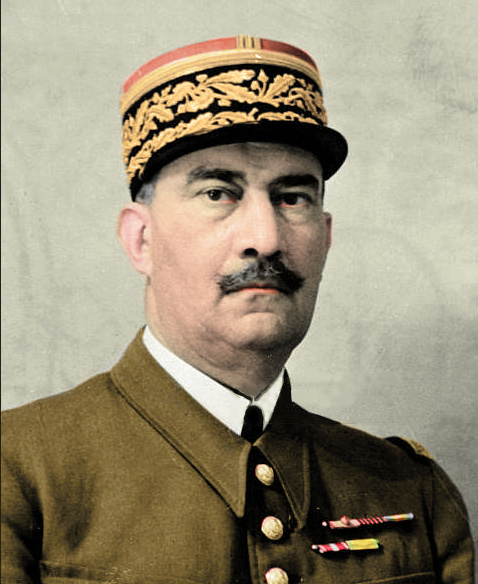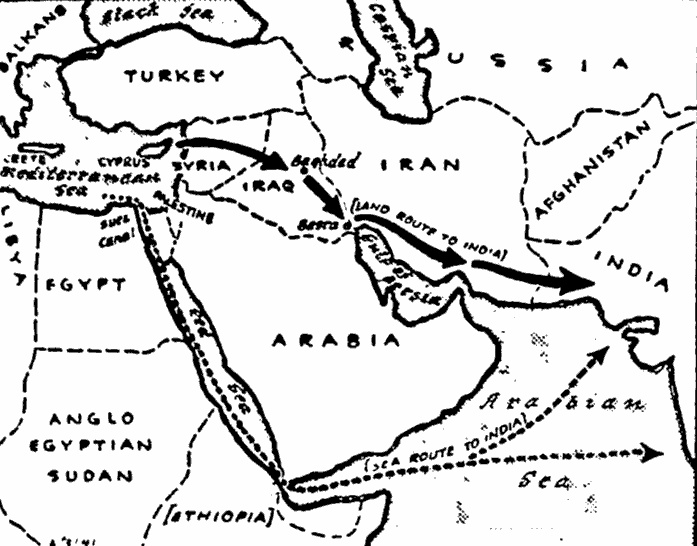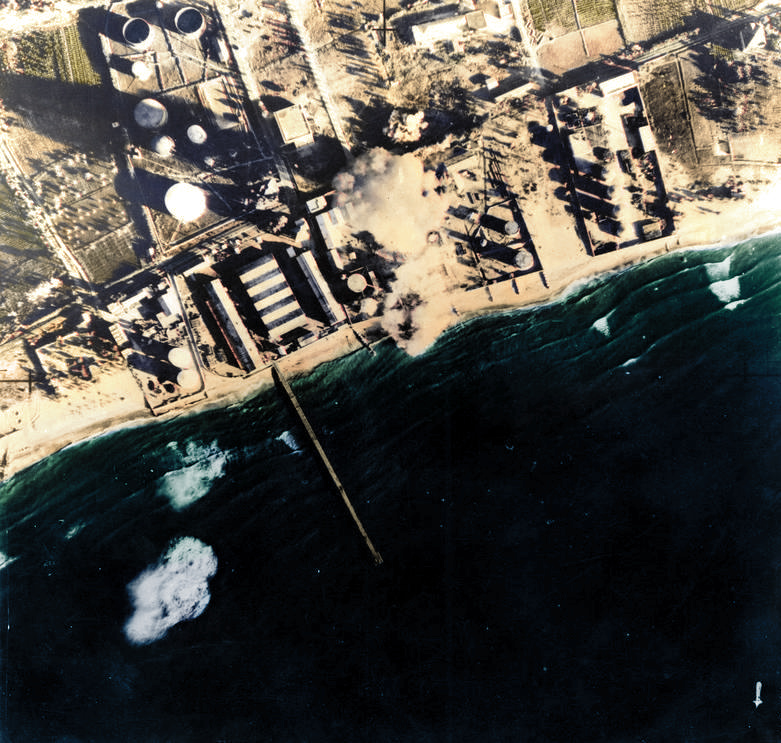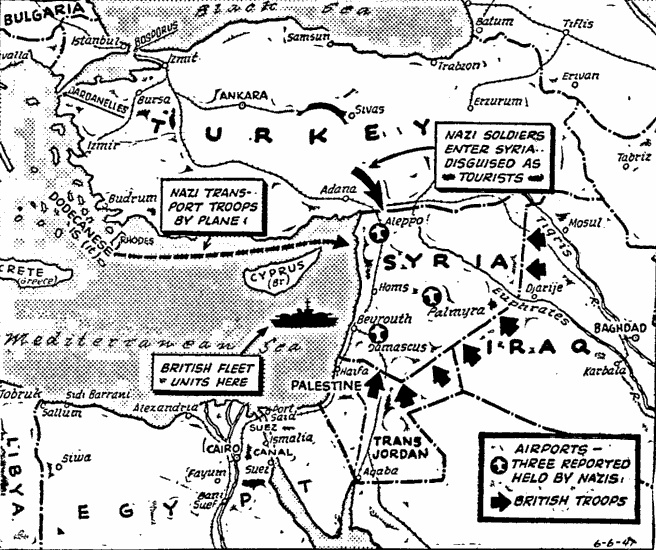U.S. Department of State (May 29, 1941)
740.0011 European War 1939/11442: TelegramThe Consul General at Beirut to the Secretary of State
Beirut, May 28, 1941 — 10 a.m.
[Received May 29 — 9:02 p.m.]
171.French hospital ship Canada arrived yesterday and is due to leave in a day or two. Local French sources fear French authorities will attempt to put on board a number of Free France sympathizers who are being rounded up in ever increasing numbers, including officers and non-commissioned officers who have recently declined to cooperate with German air personnel in Syria. They suggest ship be thoroughly searched by the British before it reaches a French port.
We learn that loads of arms and ammunition continue to leave Syria for Iraq while considerable quantities of gasoline are still reaching Aleppo from Mosul.
German planes are flying over Syrian territory at night and at present refuel at Palmyra rather than Damascus and Aleppo.
I hear the French are planning to start regular air service with Dewoitine three-engine passenger planes between France and Beirut via Brindisi, Salonika.
Repeated to Vichy.
ENGERT
U.S. Department of State (May 30, 1941)
740.0011 European War 1939/11445: TelegramThe Consul General at Beirut to the Secretary of State
Beirut, May 30, 1941 — 10 a.m.
[Received 2:13 p.m.]
179.Reliable source in Aleppo reports that at least 200 German airplanes have crossed Syria since May 9 and that most of them flew over Turkish territory of Hatay. In Aleppo nobody seems to have the slightest faith in Turkish professions of pro-British sentiments and most people believe today what relatively few felt 2 or 3 months ago, viz., that Turkey would prove a broken reed to lean upon. It is firmly believed that unless the British take over Syria immediately and deal the Iraqi rebels a crushing blow Turkey will yield to Nazi pressure just as Bulgaria did.
Since May 23, nearly 150 carloads of wheat, rice and sugar in addition to gasoline have already arrived from Iraq at Aleppo which is of enormous propaganda value to the German Government in supporting Syrian nationalist and Iraqi rebel political and economic cooperation.
Repeated to Vichy and Ankara.
ENGERT
U.S. Department of State (May 31, 1941)
740.0011 European War 1939/11493: TelegramThe Consul General at Beirut to the Secretary of State
Beirut, May 31, 1941 — noon.
[Received 1:15 p.m.]
181.I learn from a reliable source that the German Government has demanded through Vichy that facilities be given to the landing of German military equipment, tanks, etc., at Beirut and Tripoli. High Commissioner was opposed on the ground that it would alarm the people and might cause disturbances. He offered instead a small landing place near the cement factories at Chekka just south of Tripoli. This the Germans declined as inadequate and have insisted on Latakia where they propose to land their supplies from small Greek vessels.
Germans have demanded delivery of 4,000 hectolitres aviation spirits per diem but the French state they cannot supply that much.
Sixteen German expert anti-aircraft gunners have just arrived.
About 25 French Dewoitine pursuit planes arrived at Riyaq a day or two ago which may explain the rumor reported in the last paragraph of my 171, May 28.
Repeated to Vichy.
Please inform British authorities.
ENGERT
The Pittsburgh Press (June 2, 1941)
BRITAIN URGED TO TAKE OVER FRENCH SYRIA
…
Defense of Crete criticized; Army chiefs told to use imagination
…
By Edward W. Beattie Jr., United Press staff writer
London, June 2 –
The public and press tonight increasingly demanded that Britain seize the initiative in the Mediterranean and occupy Syria before Germany establishes a stranglehold on the Middle East.
There were demands that Britain not only beat the Germans to Syria, but that the British commanders in the Eastern Mediterranean employ some imagination in dealing with German aggressiveness and ingenuity.
It was believed that demands for the British to move into Syria may crystallize with action in the next few days because of the general belief that if the British do not move in, the Germans will employ Syria for air bases and for landing German panzer divisions to attack Suez.
Campaign badly managed
There was substantial opinion here that the Crete campaign – despite the great bravery of the defending troops – had been badly handled.
The Evening News said that:
The brutal truth is that we were driven out of Crete by a well-planned and determined attack on lines which found us with our minds still dwelling on the methods of the last war and inadequately prepared.
It was pointed out that, despite the obvious fact that the German attack must come from the air, the Nazi dive bombers succeeded in knocking out the inadequate anti-aircraft defenses and clearing out the airdromes which had not been mined by the British so that they could be destroyed if not held.
During the six-month occupation of Crete by the British, it was noted, airport facilities on the island were not expanded and the British ground troops, as usual, were forced to battle the Germans with rifles, bayonets and a few machine guns against German automatic weapons.
The Daily Mail said:
Why is it that the story of unavailing heroism has been repeated in Crete?
Just a year ago today, the Dunkirk evacuation was reaching a climax and the British began to talk about the same story they are now getting from the Mediterranean – not enough guns, no real air protection, outmoded conceptions of strategy.
Situation not as serious
The situation today is not as serious and probably will not lead to the fall of the government as the Norwegian evacuation did, but there may be a big demand that Prime Minister Winston Churchill see to it that he gets lieutenants as capable and with as much imagination as he has.
Diplomatic sources at Istanbul reported that Britain was expected to take strong measures against Syria soon, and the hope was entertained here that the government would occupy it.
The War Office announced yesterday that 15,000 British troops had been evacuated from Crete and admitted that British losses had been heavy in the vain attempt to hold the island against the German airborne forces who had poured in day and night and finally had been joined by Italians.
The Air Ministry announced the removal of Air Chief Marshal Arthur W. Longmore, Commanding-in-Chief, RAF Middle East. Marshal Longmore was named Inspector General of the Royal Air Force and was succeeded in the Middle East command by Air Vice Marshal A. W. Tedder, who had served as his second-in-command.
The depression over the British defeat in Crete was offset somewhat, first by the belief that the Germans had expected to take the island in two days and that they had paid heavily for the victory; secondly, by the fact that Britain had won an important victory in smashing the German-supported regime of Rashid Ali al-Gailani in Iraq.
12 days of fierce fighting
The War Office communiqué announcing the evacuation of Crete said:
After 12 days of what has admittedly been the fiercest fighting in this war, it was decided to withdraw our forces from Crete.
Although the losses we have inflicted on the enemy’s troops and aircraft have been enormous, it became clear that our naval and military forces could not be expected to operate indefinitely in or near Crete without more air support than could be provided from our bases in Africa. Some 15,000 of our troops have been withdrawn to Egypt but it must be admitted that our losses have been severe.



